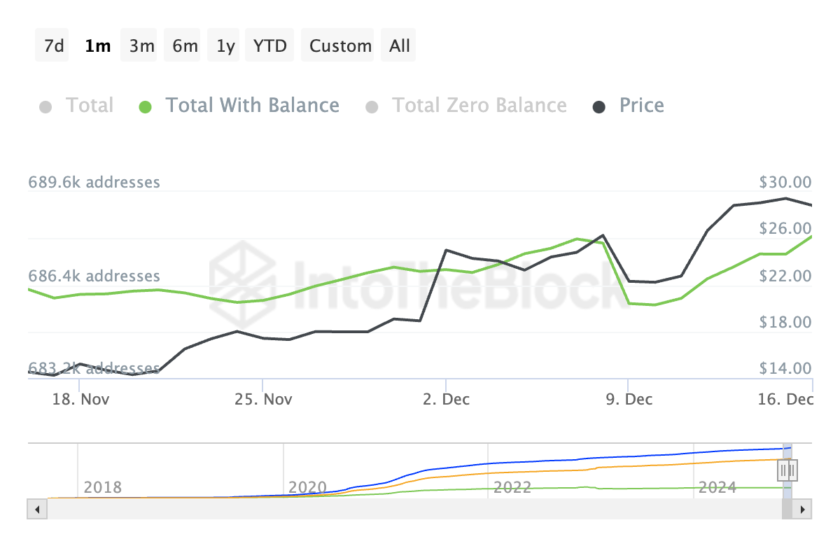Soon after an unknown entity “rescued” $5.7 million worth of STEEM tokens from a “New Steem” hard fork seizure, Bittrex confirmed that the funds reached their account. The crypto exchange now faces a difficult decision of what to do with the 23.6 million STEEM tokens allegedly stolen from Steem witnesses.
In a May 21 statement, Bittrex co-founder Richie Lai confirmed that the entity of the transaction initiator, the account named “community321,” remains unknown so far. Lai pointed out that there is an allegation that the account could be hacked outside of Bittrex.
The statement reads:
“This morning, someone deposited 23,627,501 STEEM to the main Bittrex holding account. What happened during the hard fork and the allegation that the “community321” account was hacked outside of the Bittrex ecosystem are two separate issues. We cannot conflate these two issues.”
STEEM tokens are onto unclaimed state on Bittrex until a user can prove ownership
The Bittrex co-founder continued that the exchange will carefully “review the facts of this transfer” in order to return the funds to the original wallet owner. But in order to get these funds returned, the owners will have to prove that funds belong to them, Lai elaborated. According to Bittrex, the transaction was sent “without the proper identifying memo,” which makes it hard to identify the ownership of the funds.
Lai wrote:
“In cases like this, if someone is claiming they are a victim of hacking, we ask for proof of ownership before we return the funds to the person or people who claim they were hacked.”
Bittrex spokesperson elaborated to Cointelegraph that the exchange now needs to sort out ownership due to complexities associated with the nature of the holding account. As Bittrex’s main holding account “is like a bank routing number,” each transaction needs to have an identificator of the depositor. The person said:
“When a deposit is made into that account, it must have an associated memo identifying who the depositor is. […] Think of it this way, our main holding account is like a bank routing number and the memo/message is the bank account number. When a deposit comes in without a memo matching one in our database, it goes into an unclaimed state until a user can prove ownership.”
“We must live by the rules of the blockchain”
Although Bittrex is apparently committed to return the funds to its rightful owners, the exchange’s overall message is somewhat mixed. “The consensus of the blockchain, regardless of how it was reached, agreed that the funds from those 64 accounts be moved to the “community321” account,” Lai noted in the statement.
In conclusion, the Bittrex co-founder purportedly believes that the “sanctity of blockchain” should be above “personal opinions.” Lai wrote:
“We believe in the sanctity of blockchain, and as an industry, we need to adhere to the consensus rules of the blockchain without interjecting whatever our personal opinions might be. If we want blockchain to succeed, we must live by the rules of the blockchain.”
Bittrex may have a legal responsibility to return the funds to the Steem witnesses
Andrew Hamilton, CEO of JPB Liberty and Steem stakeholder, outlined to Cointelegraph that Bittrex received stolen property and has a legal obligation to return that to its original owners as instructed by the party that transferred it to Bittrex. Hamilton said:
“While we in the cryptocurrency industry like to use terms such as “code is law” and the “sanctity of the blockchain”, we must also acknowledge that the law of the land takes precedence over the law of the code.”
While Hamilton apparently means that the rightful owners of the stolen funds are Steem accounts and stakeholders associated with the Steem blockchain’s rebel, the Hive blockchain, there is another party that claims ownership. Tron CEO Justin Sun, who believes that Hive witnesses stole “many millions of dollars,” is working with enforcement to get the funds back.
Bittrex is a major crypto trading platform, ranked the 17th largest crypto exchange by a market cap of $33.8 million as of press time. As reported by Cointelegraph, Bittrex was aware of the hard fork and the planned seizure of tokens before the fork took place on May 20. Accordingly, the exchange closed deposits and withdrawals of STEEM and Steem Dollars (SBD) on May 19, 2020.




